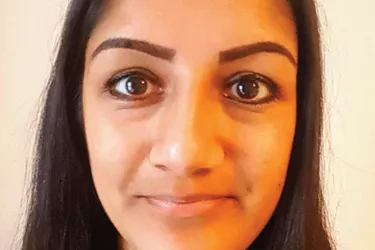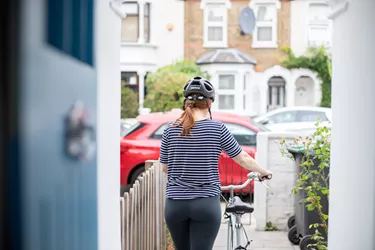Having a BPD diagnosis - my reality
Mind published a video called ‘Talking about BPD’ in which two women shared their experiences of BPD and how Dialectical Behaviour Therapy (DBT) had helped them.
My experience of borderline personality disorder (BPD) has been different from the one shown in this video. For me, BPD is a label which acts as a disadvantage in life, it knocks my confidence and rewrites my history. I hide the diagnosis from my employer though it follows me like a bad reputation with any encounters with services across the NHS.
While the video is full of hope about DBT as a therapy, in many NHS commissioning areas this option is not available. Even where specialist personality disorder services do exist, these operate along a single model such as a therapeutic community. There is no choice of individual or group therapies, since for people labelled with BPD, other approaches within mental health teams are off limits. Medication is seen as ineffective for BPD, an 'intervention' we may ask for inappropriately. Group programmes for BPD may be within work hours, involve travel to different towns or be impossible for individuals who can't open up in groups where they feel memories are too private and traumatic.
"We are supposed to feel grateful there is any service for borderline personality disorder at all..."
I was in a therapeutic community some years ago, there was constant conflict and crisis which made it impossible to focus my own issues. I picked up more serious self-harming since that was the norm there. Group therapies for personality disorders could bring together people with completely different issues ranging from serious addictions, criminal and abusive behaviour, trauma and long lasting depression. There shouldn't be a one size fits all but this is what is expected for cost efficiency reasons. We are supposed to feel grateful there is any service for borderline personality disorder at all when mental health teams would exclude and not know how to help us otherwise.
Life threatening self-harm and suicidal actions are seen by clinicians as someone’s typical behaviour with BPD and a choice we make when not taking responsibility for our actions. There is a failure of empathy on the part of some caregivers in comparison with that shown to other patients who are suicidal due to depression. This different value placed on someone's life, dependent on their diagnosis, is a human rights and equality issue. If only the public perception of BPD acknowledged the caring, intelligence and sensitivity of many who are pushed into this diagnosis group.
"If only the public perception of BPD acknowledged the caring, intelligence and sensitivity of many who are pushed into this diagnosis group."
Even where BPD is known about it is often seen as too complex - as though sufferers are a different entity to be treated in a special way even if that way isn't on offer. I have sat in meetings with commissioners where they have deemed it suitable to offer six months of treatment or less. I asked how they expected anyone with a diagnosis of BPD to recover within six months, I received no coherent answer only that there were different personality disorders and there was high a risk of dependency with them.
I feel the division the NHS makes between common mental health problems and severe mental illness also has a significant impact on the treatment of personality disorders. Instead of putting people into groups depending on the level of impact their problems have on their lives, they group them by diagnosis. Psychosis i.e. schizophrenia, bipolar disorder and schizoaffective disorder are viewed as ‘severe’ mental illness. Anything else, including personality disorders, anxiety disorders, eating disorders are ‘common mental health issues’ even if they are actually debilitating. So in a time of budget cuts essential services saved may not be for so called ‘common’ problems, they will prioritise the 'severe end' and leave people in need without life saving support.
I was discharged by mental health services over two years ago. Since then I have had several re-referrals from my GP which tend to be rejected by the (ironically named) access team. I receive letters referring to BPD or 'borderline personality traits with dependent personality.'
"This terminology makes me feel like I never had real problems in the first place, that I have just been too 'clingy'..."
This terminology makes me feel like I never had real problems in the first place, that I have just been too 'clingy' as fits with the charges of too dependent on services. I am discharged after one off appointments with no offer of help at all. Even with this light touch or no touch approach for BPD there is no expectation of full recovery only a view that we will learn to manage our symptoms and utilise expensive health services less over time.
Public awareness of BPD remains very low. I could be viewed as not helping to improve this lack of information but there is too much outside, including the NHS, which feels risky. Anyone can read up about BPD online, but I think books like Walking on Eggshells make us seem like a problem for our families. Even though their site has many blogs and some info on BPD, I don’t think the Time to Change campaign has had much of an impact on the stigma around BPD. For example I doubt that many celebrities would speak about having it, whereas they seem to readily about bipolar disorder.
"I doubt that many celebrities would speak about having it, whereas they seem to readily about bipolar disorder."
It is encouraging that Mind are taking up the issue of BPD with accounts here which come across as brave and honest. I just hope that everyone, including the NHS and government are listening as it will take a very wide effort to change the status quo.
Watch 'Talking about BPD'


Information and support
When you’re living with a mental health problem, or supporting someone who is, having access to the right information - about a condition, treatment options, or practical issues - is vital. Visit our information pages to find out more.
Share your story with others
Blogs and stories can show that people with mental health problems are cared about, understood and listened to. We can use it to challenge the status quo and change attitudes.

















